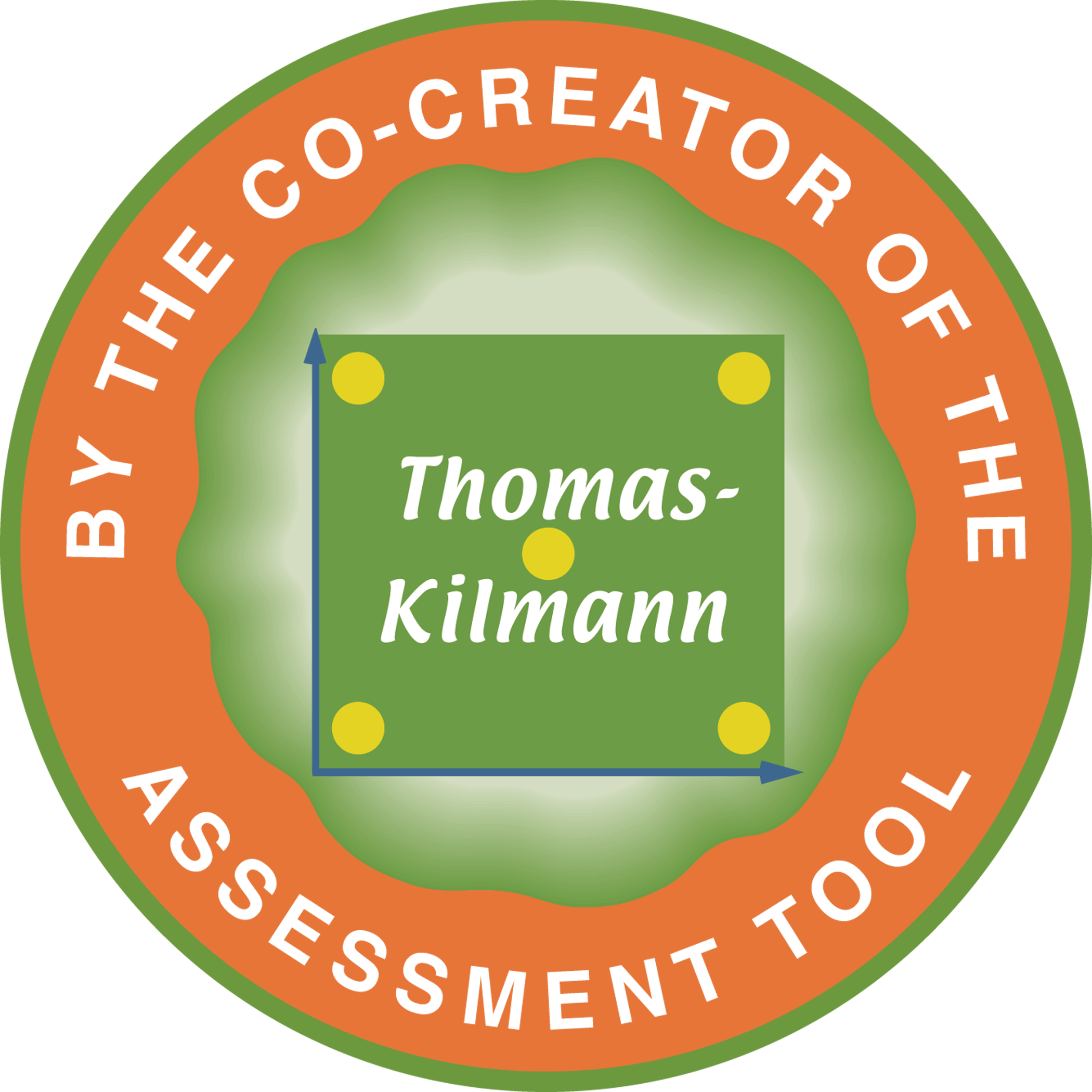08 Jan An Overview of the TKI Assessment Tool
Ralph H. Kilmann, co-author of the Thomas-Kilmann Instrument (TKI)
The Thomas-Kilmann Conflict Mode Instrument (TKI) assesses five conflict modes: competing, collaborating, compromising, avoiding, and accommodating. These five behavioral choices are defined by two underlying dimensions: assertiveness and cooperativeness. In essence, the five conflict-handling modes are different combinations of trying to get your needs met (low, medium, and high) and trying to get the other person’s needs met (low, medium, and high).
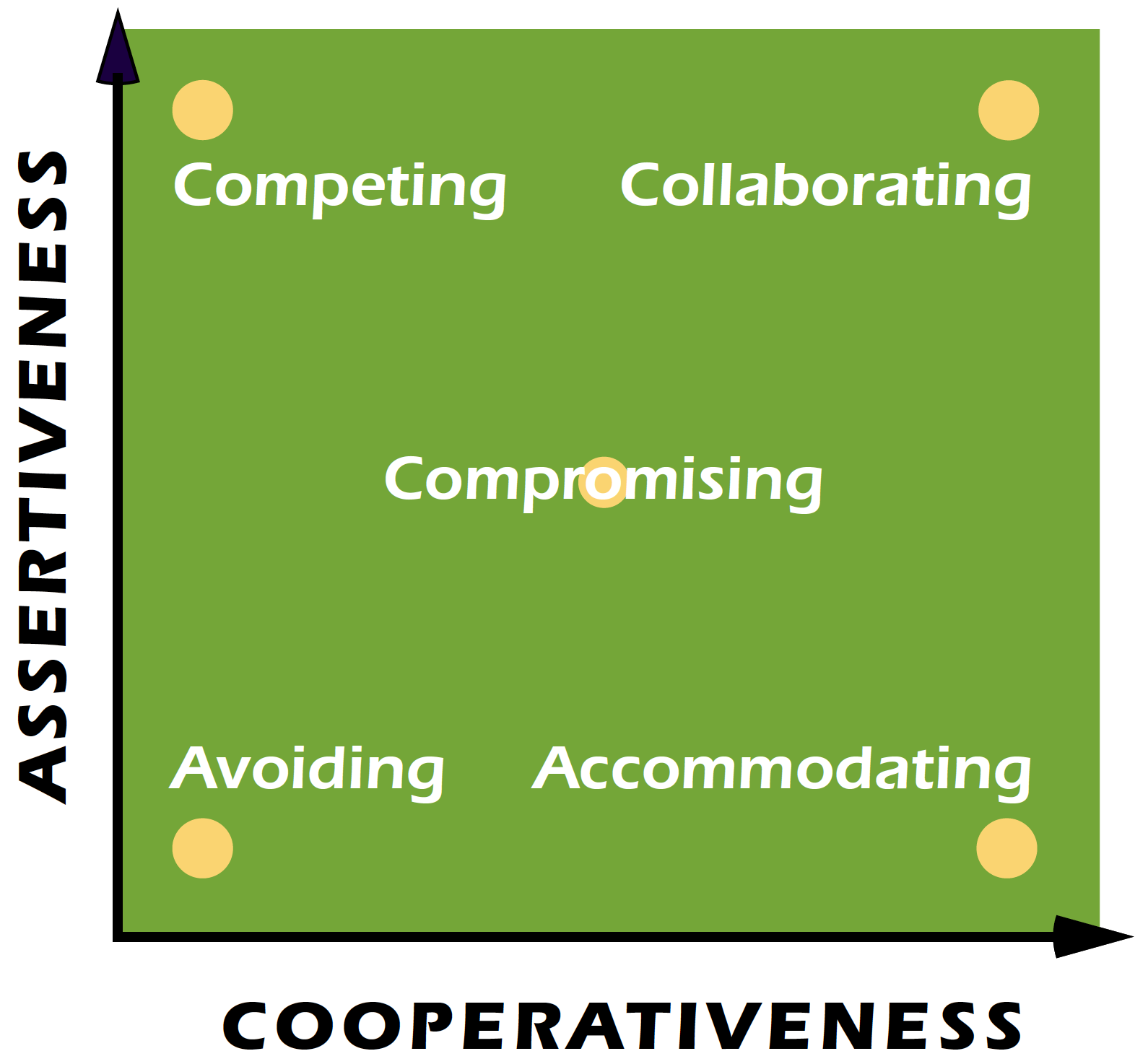
The TKI Conflict Model also includes the distributive dimension (the win-lose behaviors and outcomes along the full diagonal from competing through compromising to accommodating), the integrative dimension (the win-win behaviors and outcomes on the half diagonal from compromising to collaborating), and the protective dimension (the lose-lose behaviors and outcomes on the half diagonal between avoiding and compromising).
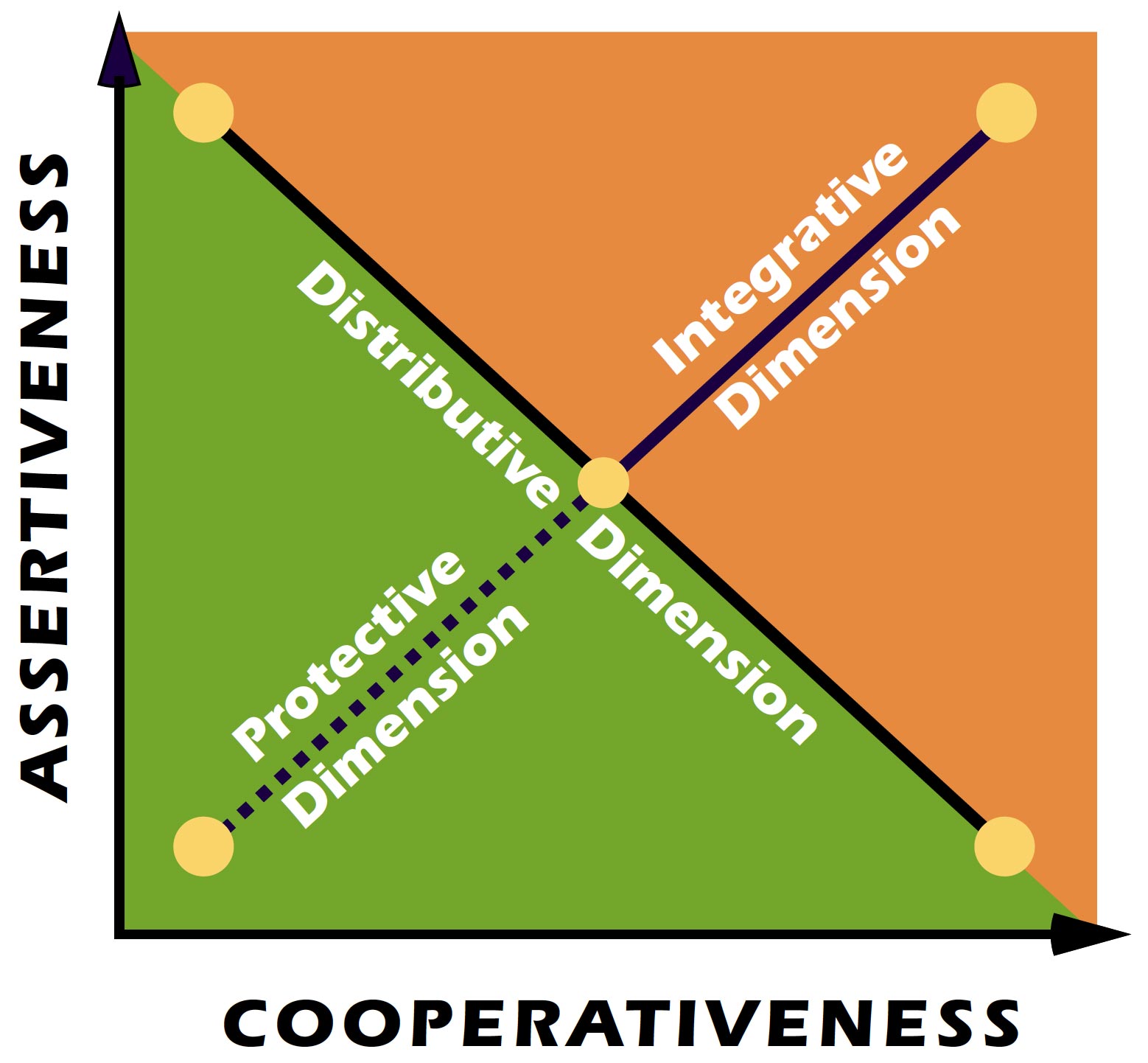
Although the standard instructions for the TKI do not specify a situation (since it’s often useful to know a person’s conflict-handling preferences across a great variety of situations), the magic of the TKI is when we modify the instructions to pinpoint a specific situation: “Inside your group (or in your organization, or in your family, or in your neighborhood, etc.), how to you usually respond when you find your wishes differing from those of another person?” A person then responds to the TKI’s 30 items with that specific situation in mind. Using such modified instructions, and next examining the resulting TKI Profile of high and low conflict-handling modes, then allows us to offer very specific—and useful—action recommendations to people, since their conflict-handling behavior is often very different from one situation to another (for better or worse).
Moreover, by having groups (work units, families, etc.) take the TKI twice with modified instructions (one TKI for “INSIDE your group” and the other TKI for “OUTSIDE your group”), we can assess the impact of cultural norms, reward systems, leader behavior, and other situational pressures that might be unduly influencing workgroups or family members to use different conflict-handling behaviors in different situations…and whether these behavioral choices are, in fact, effective—or not.
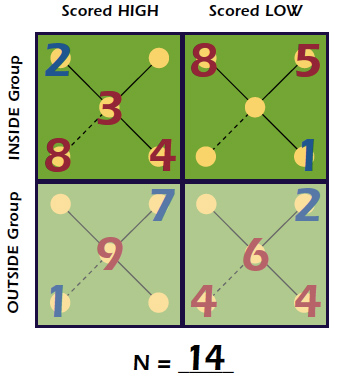
Lastly, from using the two TKI assessments to capture specific situational differences allows us to develop context-specific action recommendations that are combinations of (a) transforming the formal and informal systems that surround members, (b) developing the members’ understanding and skills in matching the right conflict modes in the specific attributes of the situation, and (c) transferring member’s conflict management wisdom from one situation to their other—more challenging—settings.
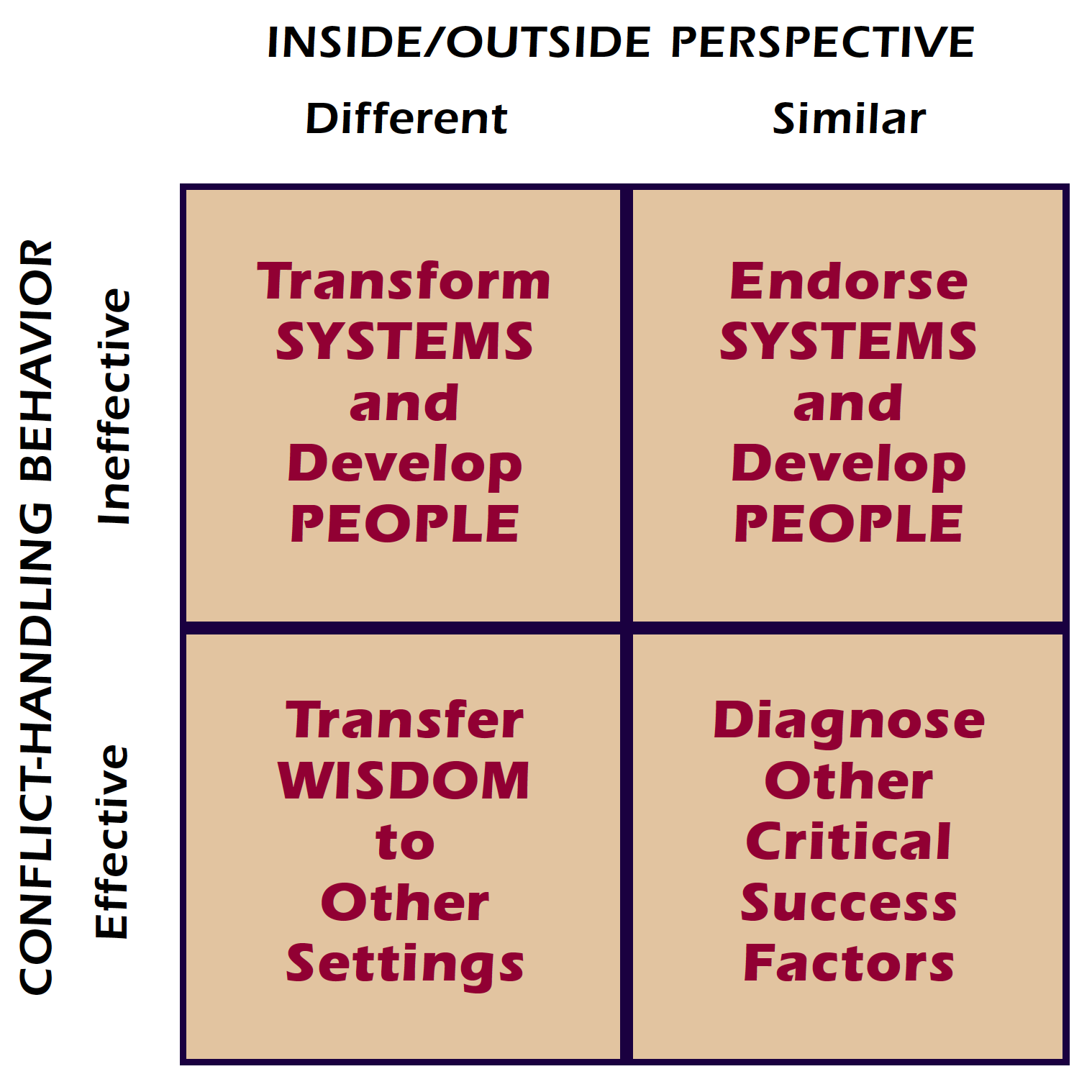
Kilmann Diagnostics offers a series of eleven recorded online courses and nine assessment tools on the four timeless topics: conflict management, change management, consciousness, and transformation. By taking these courses and passing the Final Exams, you can earn your Certification in Conflict and Change Management with the Thomas-Kilmann Instrument (TKI). For the most up-to-date and comprehensive discussion of Dr. Kilmann’s theories and methods, see his 2021 Legacy Book: Creating a Quantum Organization: The Whys & Hows of Implementing Eight Tracks for Long-term success.



